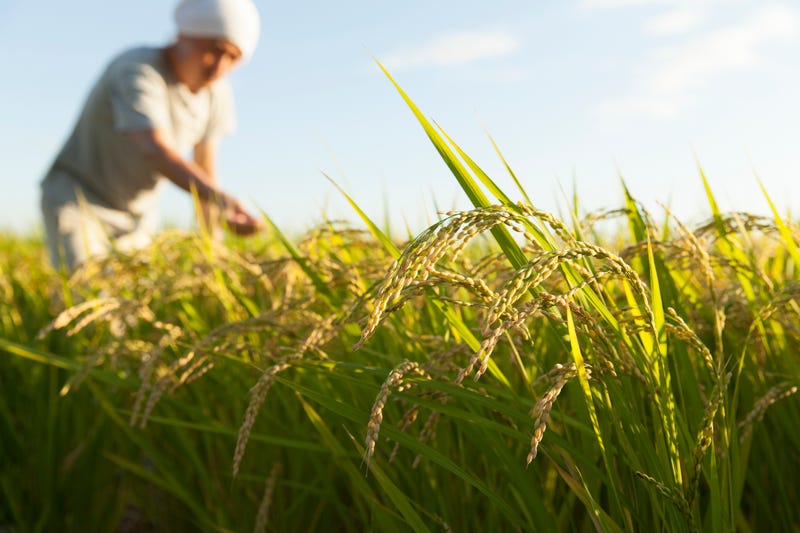
When Pete Vegas realized he won a $1 million lottery for getting a COVID-19 vaccine, the 65-year-old Colorado resident decided to use the prize to help the planet.
According to USA Today, Vegas is going to use the money to invest in “regenerative agriculture,” or farming practices that rebuild soil and restore soil biodiversity to improve the water cycle and draw carbon out of the atmosphere.
“The idea is you use less chemicals, you use less fertilizer, and in particular you till the ground less,” said Vegas, who made a career in farming. Now, his company, Sage V Foods, cooks and freezes rice at an Arkansas plant.
Before he came to Colorado, Vegas grew up in Louisiana. He said after being in agriculture his whole life that he was embarrassed that he just learned about regenerative agriculture. Right after he won the vaccine lottery, Vegas held a Zoom meeting with other farmers working in Arkansas, California, Thailand and Argentina to talk about the concept.
Vegas is offering to pay for the cost of seed if his farmers grow over crops to protect soil from erosion and nutrient loss.
“I can't save the world, but I can do my part,” Vegas said. “People today do not realize that our grandkids are going to face a very different world of climate change.”
In addition to paying for farmers’ seed, Vegas also plans to fund experiments in Northern California to try to regeneratively grow rice, said USA Today.
Vegas almost didn’t believe it when he got a text alerting him that he was a lottery winner. He had just returned from vacation with his five grandkids when he got the message and he thought it was a hoax.
“My immediate reaction was guilt,” he said of the win. “Both my wife and I said, wow, we can't keep this money. We have to do something good with it.”
Vegas is one of at least 26 people nationwide who claimed $1 million or more in COVID-19 incentive prize money, said USA Today. People have also received smaller cash prizes, scholarships, vacations or other incentives for getting vaccine doses.
“It’s the best form of kindness that we can do so easily, by just going to get the vaccine,” said 41-year-old Stephanie Sharp, another winner.
Vegas, Sharp and other lottery winners who talked with USA Today said they were not motivated by prizes to get their vaccine. In fact, a study of vaccine lotteries in 19 states published this month in the Journal of the American Medical Association found “no statistically significant association” between lottery announcements and vaccination rates.
Apart from Vegas, other winners have also donated some of their prizes to charities and community groups, including Christine Duval of Michigan and Mark Cline of Ohio.
“I just hope that everybody goes out, tries to help take care of their friends and neighbors by getting vaccinated so they are not transmitting the coronavirus,” Cline said.
As Vegas uses his winnings to work on climate change, he also hopes more people will decide to get the vaccine.
“Vaccines are not just about protecting yourselves, it’s about protecting everyone," Vegas said. "I think everybody should be getting vaccinated to put this thing away.”


